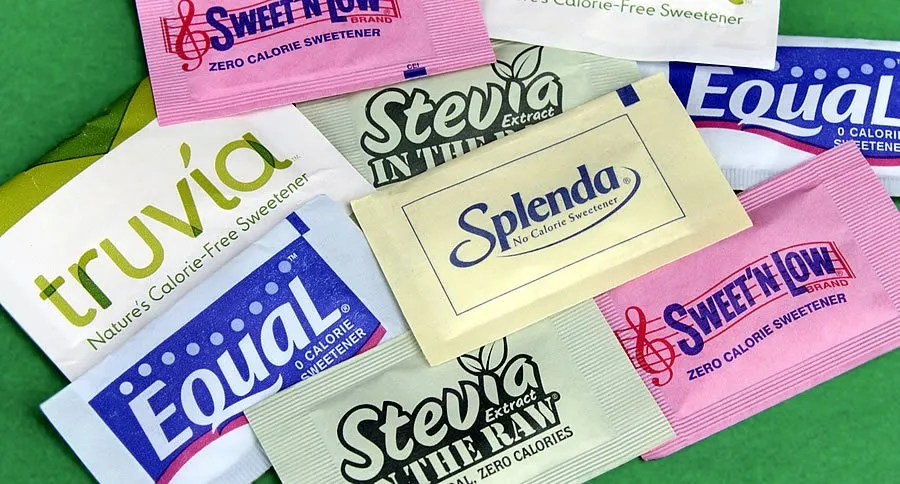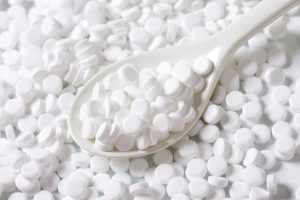
Sugar substitutes have been used for several decades. They’ve been a huge benefit to diabetics who need to keep their sugar levels down. But there are side effects. Some have been shown to cause cancer, and others seem to cause seizures in some people. We once saw our society as “better living through chemistry.” But today, we’re trying to get most of the chemicals out of our food, seeing their links to heart disease, obesity, and other health issues.
So what’s a concerned bachelor/bachelorette or anyone else to do?
Sometimes It’s Good
There are times when using a sugar substitute is a great idea, even if there may be health risks. The consequences of eating too much sugar can be worse than those posed by exposure to chemicals. But it’s also a good idea to train your sweet tooth away from craving so much sugar. This has two great advantages: 1) you have less exposure to both chemicals and sugar; and 2) when you do have something sweet, it’s all the better.
First, let’s look at the different kinds of artificial sweeteners.
Saccharin
This has been around for over a century. The use of this sweetener has declined a great deal because studies have found a link with certain forms of cancer in animal tests. Some countries have banned its use. Saccharin is about 300 times sweeter than sugar and is usually combined with other sweeteners, like maltodextrin, to lessen it’s bitter aftertaste. With the invention of other sweeteners, the use of saccharin has declined because of FDA labeling requirements as well as health concerns.
Cyclamate is a sweetener you don’t see anymore at all in the U.S. and only rarely in other countries. It has also been linked to cancer.
Aspartame
We also know this as the Nutrisweet brand. It was discovered in 1965 and is derived from two amino acids, the building blocks of protein. It was the king of the sweetener market for more than three decades. It lacks the aftertaste of saccharin and likes more acidic environments, like soft drinks and other beverages. But it doesn’t work well in baking because heat causes the amino acids to break down. There have also been cancer scares about this product but studies have been inconclusive.
Sucralose
This is best known under the brand name Splenda. It is also available now under other brands and in a generic form. This is called, nutritionally, sugar alcohol. Because it is made from chlorinated sucrose sugar but is only partially absorbed in your body, it’s been found to be a good substitute for most sweetening uses, including baking. Most baking products use a combination of sucralose and sugar. As I’ve mentioned before, you cannot replace all of the sugar in baked goods because sugar acts like a liquid in that use and you have to make up for the lost volume. For the most part, studies have not revealed any terrible health problems so far.
Stevia
Stevia is a natural sweetener made from a tropical South American plant. In its pure form, stevia is about 300 times sweeter than sugar, so special measuring is required. Like other concentrated sweeteners, it is often blended with another sugar, like Maltodextrin, to make measuring easier. You can grow your own stevia and use the leaves to sweeten your tea.
And The Rest
Maltitol and sorbitol are used frequently, in toothpaste, mouthwash, and in foods such as “no sugar added” ice cream. It is also a sugar alcohol but can cause a laxative effect if consumed in large amounts. I also think they have a nasty aftertaste. Erythritol is gaining momentum as a replacement for these other sugar alcohols in foods as it is much less likely to produce gastrointestinal distress when consumed in large amounts. It is made by fermenting the basic sugar glucose with yeast. In many other countries, xylitol is used extensively. These are natural sugar alcohols made from plant fiber. All of these have zero nutritive value.
As you can see, sugar substitutes have their problems. Most are sweeter than sugar. Only some are really good substitutes for real sugar. But a lot depends on how you use it, just like anything else. In beverages, it seems to me most of these sweeteners are a lot better for you than sugar. Regular carbonated soda is just sugar water with bubbles. If you drink even one, you’ve shot your recommended sugar intake for the day. But learning to like coffee and tea without sweetening, not adding anything besides fruit to cereal, and other steps away from sweetness might be a good idea.






